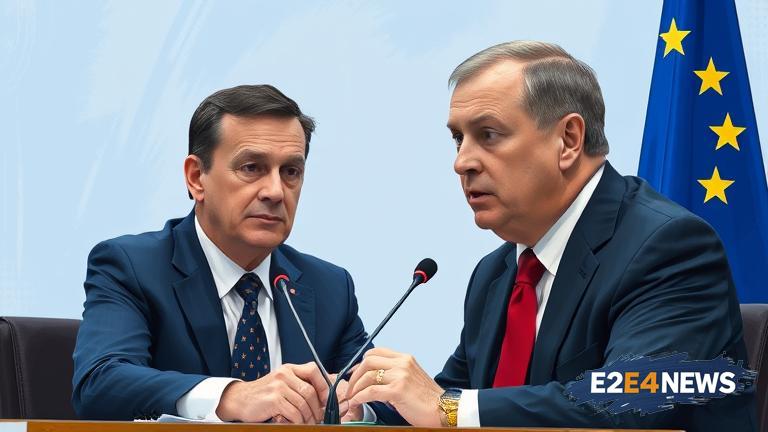The European Union Council Chief has announced an emergency summit to discuss the ongoing crisis in Belarus, which has been marked by widespread protests and human rights abuses. The summit is a response to the growing concerns among EU leaders about the situation in Belarus, where President Alexander Lukashenko has been accused of rigging the recent presidential election. The protests, which have been ongoing for several weeks, have resulted in numerous arrests, injuries, and deaths. The EU has been critical of the Lukashenko regime’s handling of the situation, and has imposed sanctions on several high-ranking officials. The emergency summit is expected to bring together EU leaders to discuss possible further actions, including additional sanctions and support for the Belarusian people. The situation in Belarus has been described as a ‘crisis’ by EU officials, who are concerned about the potential for further escalation. The EU has been working closely with other international organizations, including the United Nations, to address the situation. The Belarusian government has been accused of using excessive force against protesters, and of restricting freedom of speech and assembly. The EU has called for the release of all detained protesters and for an independent investigation into the allegations of human rights abuses. The crisis in Belarus has also had implications for the country’s relations with its neighbors, including Russia and Ukraine. The EU has been seeking to strengthen its ties with Belarus, but the current situation has made it difficult to make progress. The emergency summit is expected to be attended by all EU member states, as well as representatives from other international organizations. The EU Council Chief has stated that the summit will provide an opportunity for EU leaders to discuss the situation in Belarus and to coordinate a response. The summit is also expected to address the issue of EU-Belarus relations, including the possibility of further sanctions and support for the Belarusian people. The situation in Belarus is complex and multifaceted, and the EU is seeking to find a solution that takes into account the interests of all parties involved. The EU has been working closely with civil society organizations and human rights groups to get a better understanding of the situation on the ground. The emergency summit is a significant development in the EU’s response to the crisis in Belarus, and is expected to have important implications for the country’s future.
